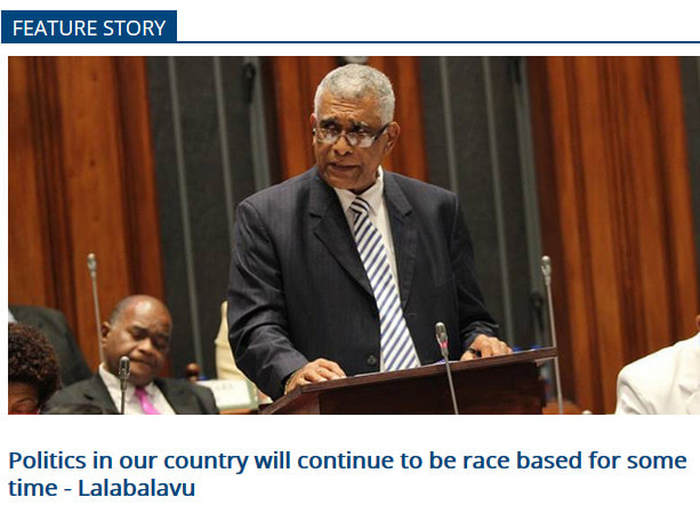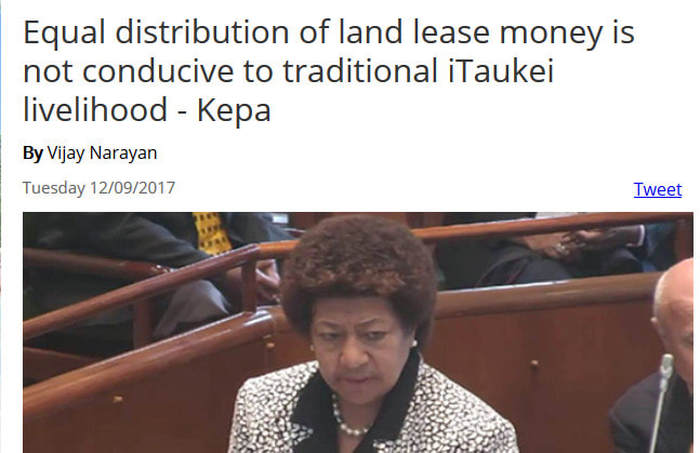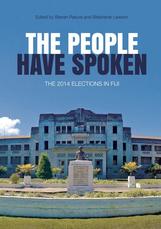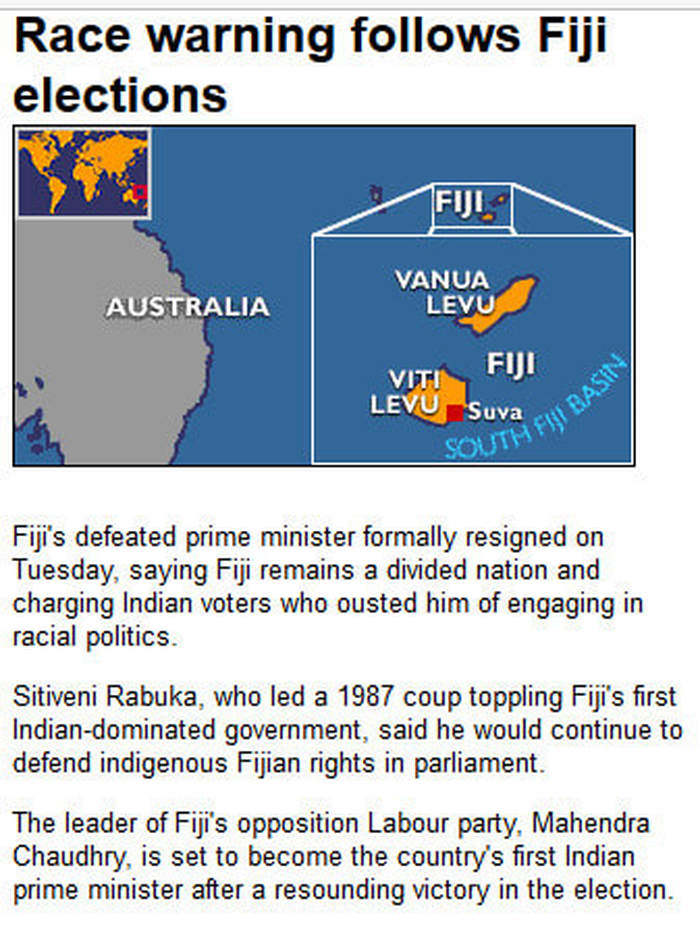The Politics of Land Lease Money: During the 1987 general election campaign the late Tui Nadi, Ratu Napolioni Dawai, a staunch Bavadra supporter, argued that a number of chiefly title disputes were linked to lease money since chiefs received a great deal more than other members of a mataqali. Dawai had himself received over $25,000 a year from the NLTB. Thirty years later, Ro Kepa argued in Parliament this week that the equal distribution of native Fijian land lease money is not conducive to the traditional livelihood of native Fijians:
Ro Teimumu says the previous distribution system was used to fund the programs and policies of the villages. She says the equal distribution to individuals is taking away the system where the iTaukei used to work together in the past.The previous system saw the highest percentage of lease money going to the chief and the heads of the landowning units. She also says the qoliqoli returns should go to the iTaukei owners, not to the state. Source: Fijivillage News, 12 September 2017.
"In advocating the old distribution system, Ro Teimumu was condoning inequality among Taukei, using facile cultural justification. What the party overlooked was that many chiefs in Fiji did not receive lease money yet still fulfilled their obligations to the vanua successfully because communalism and reciprocity were crucial values of Taukei culture. The old distribution policy actually contributed to inequality and the marginalisation of ordinary Taukei in their traditional villages; and they never questioned it because of the belief that it was an essential part of Taukei culture. It must be noted that the chief’s lease allocation was a private entitlement and he [or she] was not obliged by law to spend or redistribute his share of lease monies on traditional obligations. Those chiefs in receipt of land monies had benefited from a land policy that had its origins in the colonial order, which contributed to some chiefs becoming individualistic and very wealthy while ordinary Taukei remained disadvantaged despite also being owners of an important communal resource." - Sefanaia Sakai, a teaching assistant in governance at the University of the South Pacific. His area of research is land and politics in Fiji
Fijileaks: The 2014 election result loss on same issue has cut no ice with SODELPA. Sefanaia Sakai, analyzing "Native land policy in the 2014 elections" in the book The People Have Spoken, edited by Steven Ratuva and Stephanie Lawson, 2016, argued the following: "Issues concerning land insecurity, which should have been SODELPA’s political trump card, appear to have failed to gain much appeal during the 2014 elections, even though the party got the great majority of its votes from among Taukei. For ordinary Taukei, acquiring basic needs and making progress were more important and many believed that their customary land was safe...Land issues may have had some impact on the results of the 2014 elections, but the concerns expressed by SODELPA in their campaign were not sufficiently persuasive among Taukei, let alone other communities, to give SODELPA victory in the elections. It seems that Taukei voters, who outnumber all other ethnic groups in terms of voting power, considered other basic matters such as education, water, electricity and other infrastructure as more important than land. In addition, the equal distribution policy gave FijiFirst an advantage, as many LOU members whose lands are leased received economic benefits denied under the old system."
Deposed SDL Prime Minister Laisenia Qarase, while campaigning for SODELPA, invented his own version of redistribution when replying to a question that the author posed during the SODELPA campaign in Wainivula, Suva. He said that the party would let the provincial council decide on the fate of the equal distribution policy in consultation with the people. This was clearly different from Ro Teimumu’s position that SODELPA would revert to the old system.
These contradictory views became counterproductive to the party’s campaign before the elections. First, in advocating the old distribution system, Ro Teimumu was condoning inequality among Taukei, using facile cultural justification. What the party overlooked was that many chiefs in Fiji did not receive lease money yet still fulfilled their obligations to the vanua successfully because communalism and reciprocity were crucial values of Taukei culture.
The old distribution policy actually contributed to inequality and the marginalisation of ordinary Taukei in their traditional villages; and they never questioned it because of the belief that it was an essential part of Taukei culture. It must be noted that the chief’s lease allocation was a private entitlement and he was not obliged by law to spend or redistribute his share of lease monies on traditional obligations. Those chiefs in receipt of land monies had benefited from a land policy that had its origins in the colonial order, which contributed to some chiefs becoming individualistic and very wealthy while ordinary Taukei remained disadvantaged despite also being owners of an important communal resource.
In 2010, the Bainimarama Government amended the Leases and Licenses Regulations of the Native Land Act to ensure equal distribution of lease money to mataqali members. The amendment was introduced in line with a government policy of inclusiveness and designed to address inequality among Taukei landowners. Wealth from the use of Taukei land through leasing has been substantial, but had not been distributed on an equal basis.
According to the iTaukei Land Trust Board (TLTB, formerly the Native Land Trust Board or NLTB), the total lease income distributed to LOUs has increased from FJD$24 million in 2000 to FJD$64 million in 2014 (TLTB 2014, p. 11). For the first time, under the new equal distribution policy, chiefs and commoners within a mataqali would share the economic gains from the use of their mataqali land equally (see hypothetical scenario Figure 1). Before the amendment, the TLTB usually deducted 25 per cent as an administration fee and also to assist the TLTB to generate development projects on Taukei land.
There were also three categories of chiefs who received the largest share of the lease money under the old distribution system: turaga ni vanua (village chief) received 5 per cent, turaga ni yavusa (tribal chief) received 10 per cent, and turaga ni mataqali (clan chief) received 15 per cent. Often a single chief would receive the full 30 per cent entitlement because he was holder of all three titles and belonged to the clan whose land was leased for development.
The remaining 45 per cent was shared by the rest of the mataqali members. In 2013, the Bainimarama regime also reduced the TLTB share from 25 per cent to 10 per cent, putting an emphasis on the TLTB self-funding its own operation rather than relying so heavily on deductions from lease money.
The equal distribution policy has also contributed to the reduction in the number of registered disputes over chiefly titles in the country in 2013 and 2014. For example, the Native Lands Commission received three chiefly titles dispute cases in 2014 compared to 13 recorded cases in 2013. The commissioner attributed this decline to the implementation of the equal distribution policy by the Bainimarama Government (FBC 2014). However, the validity of this analysis could be substantiated only after in-depth research on the issue of equal distribution and titles disputes. - Sefanaia Sakai
Meanwhile, it is clear Ratu Naiqama's suspension from Parliament served him no purpose, for he has returned to Parliament to sing same old tune. SODELPA is fast becoming a derelict imitation of Butadroka's Fijian Nationalist Party, and come 2018 general election will bite political dust. What about the 40 percent of native Fijians who VOTED for FFP?

While speaking on the President’s opening speech in parliament, Ratu Naiqama says this is the reality on the ground.
Ratu Naiqama then accused the minority communities of block-voting during the elections.
He then went on to say that SODELPA reassures all the minority religious and ethnic communities in Fiji that the party is committed to assuring their security in the country.
While speaking about the 2018 elections, Ratu Naiqama said that they agree with the recommendation that the ballot papers must have the party name, symbol as well as the names of the candidates.
He also says that they are recommending that pre-polling be restricted to emergency workers and essential services and that the rest of the population vote on voting day, to make it truly a one day election.
Ratu Naiqama also says that as the apex of the Itaukei institutions, the good governance and wellbeing of the Itaukei firstly is the responsibility of the Great Council of Chiefs.
He says the unique role of the GCC is to make recommendations to the government of the day for the wellbeing of the Itaukei.
Ratu Naiqama says the only remedy for the country is to choose new leadership in 2018.
Fijileaks: Ratu Naiqama is accusing ethnic minorities of block voting in the elections; he is repeating his Cakuadrove subject and coupist and now SODELPA leader Sitiveni Rabuka who had accused Indo-Fijian of bloc voting in the 1999 general election which had resulted in the defeat of his SVT Party to Mahendra Chaudhry's People's Coalition.






